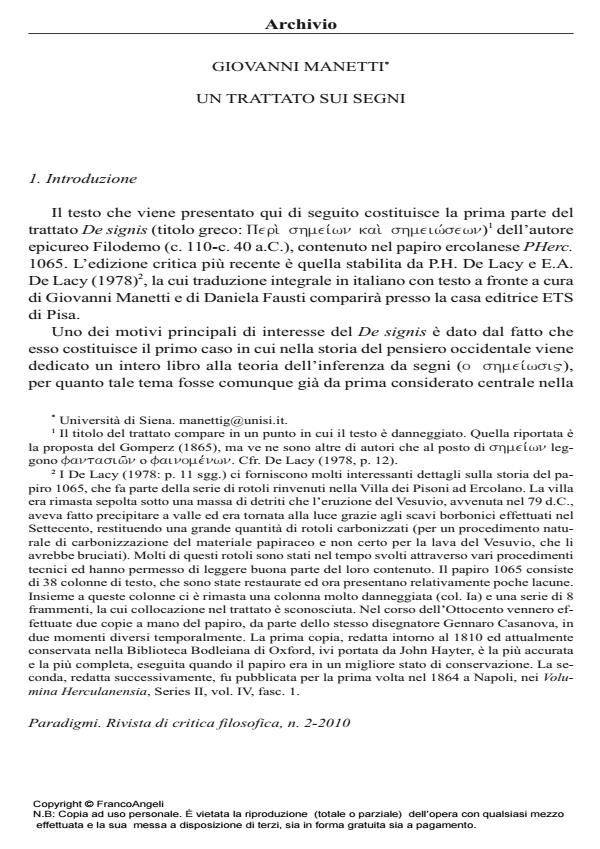Philodemus on signs
Journal title PARADIGMI
Author/s Giovanni Manetti
Publishing Year 2010 Issue 2010/2
Language Italian Pages 33 P. 165-197 File size 360 KB
DOI 10.3280/PARA2010-002013
DOI is like a bar code for intellectual property: to have more infomation
click here
Below, you can see the article first page
If you want to buy this article in PDF format, you can do it, following the instructions to buy download credits

FrancoAngeli is member of Publishers International Linking Association, Inc (PILA), a not-for-profit association which run the CrossRef service enabling links to and from online scholarly content.
Philodemus’ treatise On Signs (40 BC) plays a fundamental role in the reconstruction of ancient semiotic thought. In fact, it presents a wide-ranging, sophisticated set of philosophical speculations concerning sign-inference. It consists of four parts, reporting a debate between the Epicureans and an opposig philosophical school (the Stoics, according to some scholars’ opinion). The first of the four parts is presented here in Italian translation. The Epicureans maintained the inference from signs, or semeiosis, to be a procedure based on similarity. The critics’ opposition was centred on the idea that an inference must be based not on similarity, but rather on anaskeué ("elimination", sometimes interpreted as "inference to the best explanation", and considered as a "criterion", not a "method"). Responding to their critics, the Epicureans elaborated instead a criterion of validity of the conditional that they defined as adianoesia ("inconceivability").
Keywords: Epicureans, Philodemus, Sign, Sign-inference, Similarity, Stoics.
- An important chapter in the history of semiotics: inference from signs in Philodemus’ De signis
Giovanni Manetti, in Semiotica /2023 pp.117
DOI: 10.1515/sem-2022-0077
Giovanni Manetti, Un trattato sui segni in "PARADIGMI" 2/2010, pp 165-197, DOI: 10.3280/PARA2010-002013